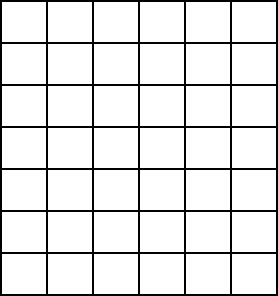Problems
We meet a group of people, all of whom are either knights or liars. Knights always tell the truth and liars always lie. Prove that it’s impossible for someone to say “I’m a liar".
We’re told that Leonhard and Carl are knights or liars (the two of them could be the same or one of each). They have the following conversation.
Leonhard says “If \(49\) is a prime number, then I am a knight."
Carl says “Leonhard is a liar".
Prove that Carl is a liar.
Let \(p\) be a prime number greater than \(3\). Prove that \(p^2-1\) is divisible by \(12\).
You meet an alien, who you learn is thinking of a positive integer \(n\). They ask the following three questions.
“Am I the kind who could ask whether \(n\) is divisible by no primes other than \(2\) or \(3\)?"
“Am I the kind who could ask whether the sum of the divisors of \(n\) (including \(1\) and \(n\) themselves) is at least twice \(n\)?"
“Is \(n\) divisible by 3?"
Is this alien a Crick or a Goop?
Find the mistake in the sequence of equalities: \(-1=(-1)^{\frac{2}{2}}=((-1)^2)^{\frac{1}{2}}=1^{\frac{1}{2}}=1\).
Prove for any integers \(m,n\ge0\)
that \(F_{m+n} = F_{m-1}F_n +
F_mF_{n+1}\).
Corollary: if \(k\mid
n\), then \(F_k\mid F_n\). This
can be proven by induction if we write \(n=sk\) for a natural \(s\), then \[F_{k+(s-1)k} = F_{k-1}F_{(s-1)k} +
F_kF_{(s-1)k+1}.\]
Suppose that \(p\) is a prime number. How many numbers are there less than \(p^2\) that are relatively prime to \(p^2\)?
How many cuboids are contained in an \(n\times n\times n\) cube? For example, we’ve got \(n^3\) cuboids of size \(1\times1\times1\), and obviously just \(1\) of size \(n\times n\times n\) (which is the whole cube itself). But we also have to count how many there of size \(1\times1\times2\), \(1\times2\times3\), and several more.
In the \(6\times7\) large rectangle shown below, how many rectangles are there in total formed by grid lines?

Simplify \(F_0-F_1+F_2-F_3+...-F_{2n-1}+F_{2n}\), where \(n\) is a positive integer.